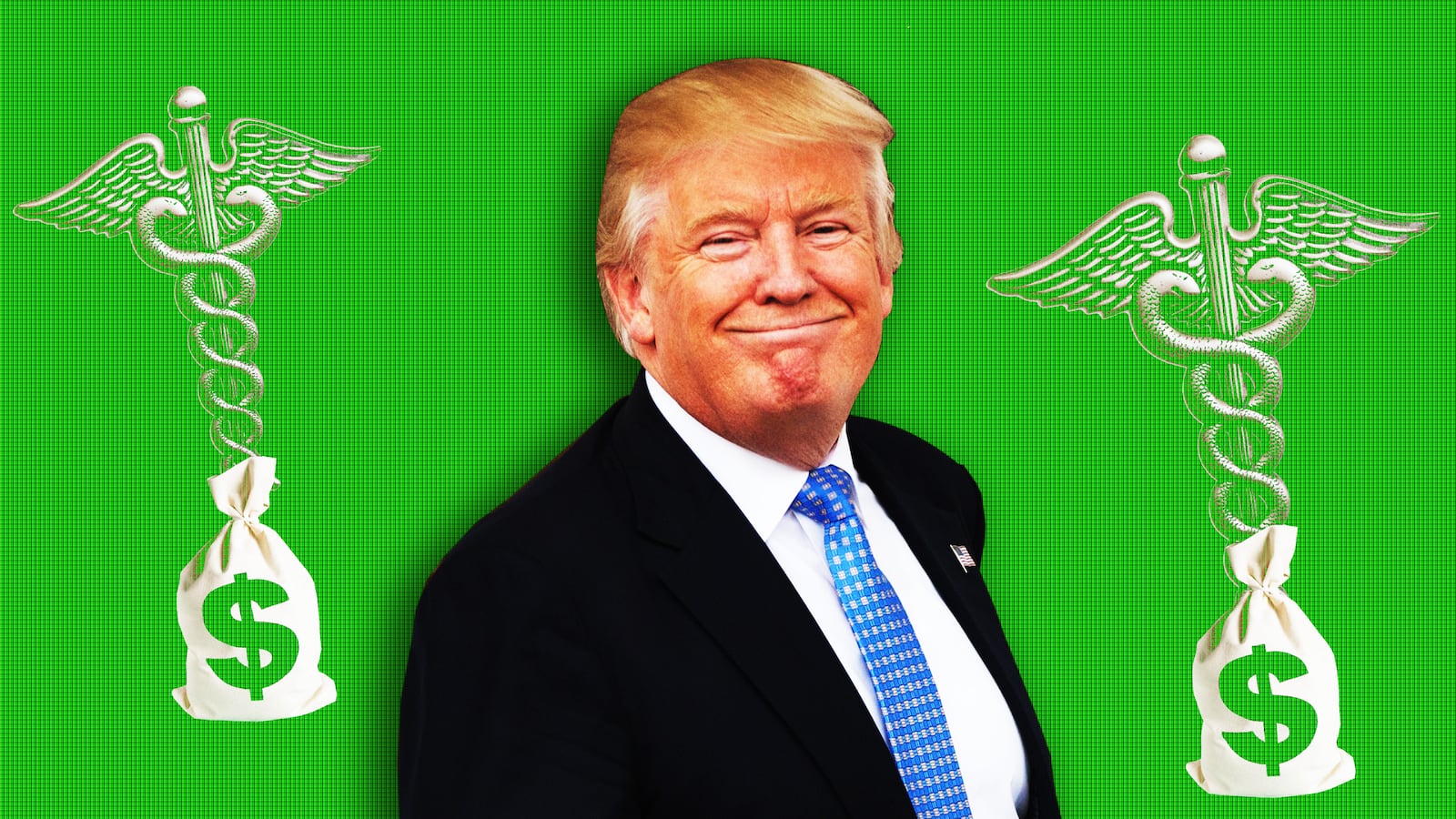President Donald Trump’s decision to end subsidy payments to insurance companies to cover the cost of poor people’s deductibles has already led a number of insurers to hike premiums.
Some of these hikes came before the president’s decision to abruptly end the so called Cost Sharing Reductions (CSR). In fact, a number of states and insurers were anticipating Trump’s decision and began to prepare consumers early; such as New Hampshire, where the expectation was set for a 43 percent median premium hike months ago.
But some of the hikes have come strictly after Trump announced his policy, and they’ve been higher than previously expected.
Pennsylvania’s Acting Insurance Commissioner Jessica Altman announced on Monday that rates in the state would increase by an average of 30.6 percent in the individual market, as opposed to the previously expected 7.6 percent.
“The president’s deliberate action and Congress’s failure to appropriate these funds despite repeated requests is forcing large rate increases on consumers in Pennsylvania and around the country, but my department is doing what we can to help our consumers understand their options and hopefully shield them from these rate increases,” Altman said in a statement.
Similarly, Washington state’s Insurance Commissioner Mike Kriedler placed the blame squarely on the president for anticipated higher rates.
“The higher rates—ranging from 9 percent 27 percent more than they proposed in June—depending on the insurer, are essentially a tax that President Trump is imposing on consumers,” Kriedler said in a statement on Tuesday. “Make no mistake: the president had a choice and he chose to make health care cost significantly more for people who need help. The fallout from this lands squarely on his shoulders. He ignored thoughtful and realistic recommendations from insurance regulators, insurers, doctors, business organizations and consumer advocates from across the country.”
Stephanie Marquis, spokesperson for the Washington State Office of the Insurance Commissioner told The Daily Beast “We anticipated that the funding could go away.”
“The timing of it was kind of a surprise but nothing can be a surprise any more I guess,” she added.
Marquis said the state approved two sets of rates, one assuming that CSR payments would be made and another assuming that they wouldn’t. Should Congress pass legislation to authorize payments, the state would revert to a lower set of rates.
It’s not yet clear if Congress will act. CSR payments have been a hot-button issue for Republicans since 2014 when the GOP-controlled House of Representatives sued the former Obama administration for making the payments, contending that doing so was not explicitly authorized under the law. A federal court ultimately ruled in favor of the House but the Obama administration appealed the ruling, allowing them to continue paying insurers as a way to offset the cost of deductibles and copays.
The payments were administered throughout the first eight months of Trump’s presidency even as he threatened to cease them. Ultimately, the White House insisted that “the Government cannot lawfully make the cost-sharing reduction payments.”
Sensing the damage this executive action could do to the health care market, Sens. Lamar Alexander (R-TN) and Patty Murray (D-WA) announced on Tuesday that they had reached a deal on a package that would authorize a two-year extension of the CSR payments in exchange for reforms that loosened coverage requirements for coverage sold on the Obamacare exchanges. Initially, President Trump signaled support for the proposal. But on Wednesday morning, he backed away.
“I am supportive of Lamar as a person & also of the process, but I can never support bailing out ins co’s who have made a fortune w/ O’Care,” Trump tweeted.
Not paying the CSRs could have major impacts both in the immediate and long term future. The Congressional Budget Office had determined earlier this year that terminating CSR payments would lead to gross premiums for silver tier individual plans rising by 20 percent next year and 25 percent by 2020.
Prior to Trump’s decision to end the payments, the Obamacare exchanges seemed to have stabilized, with insurers stressing that they had gotten a fuller grasp on the demographics of their consumers, and no county left without coverage. But the administration’s decision to end CSRs has changed that, at least in some states.
BlueCross BlueShield of North Carolina, for example, announced on Wednesday that its requested rate increase for 2018 had actually gone down from 22.9 percent to 14.1 percent. But it could have been significantly lower.
“Ending these federal reimbursements will drive up premium costs and make it harder for insurers to participate in the ACA marketplace in the long run,” the company wrote. “Had CSR payments not been eliminated, Blue Cross NC’s final rate request for ACA customers’ average would have been near zero.”




